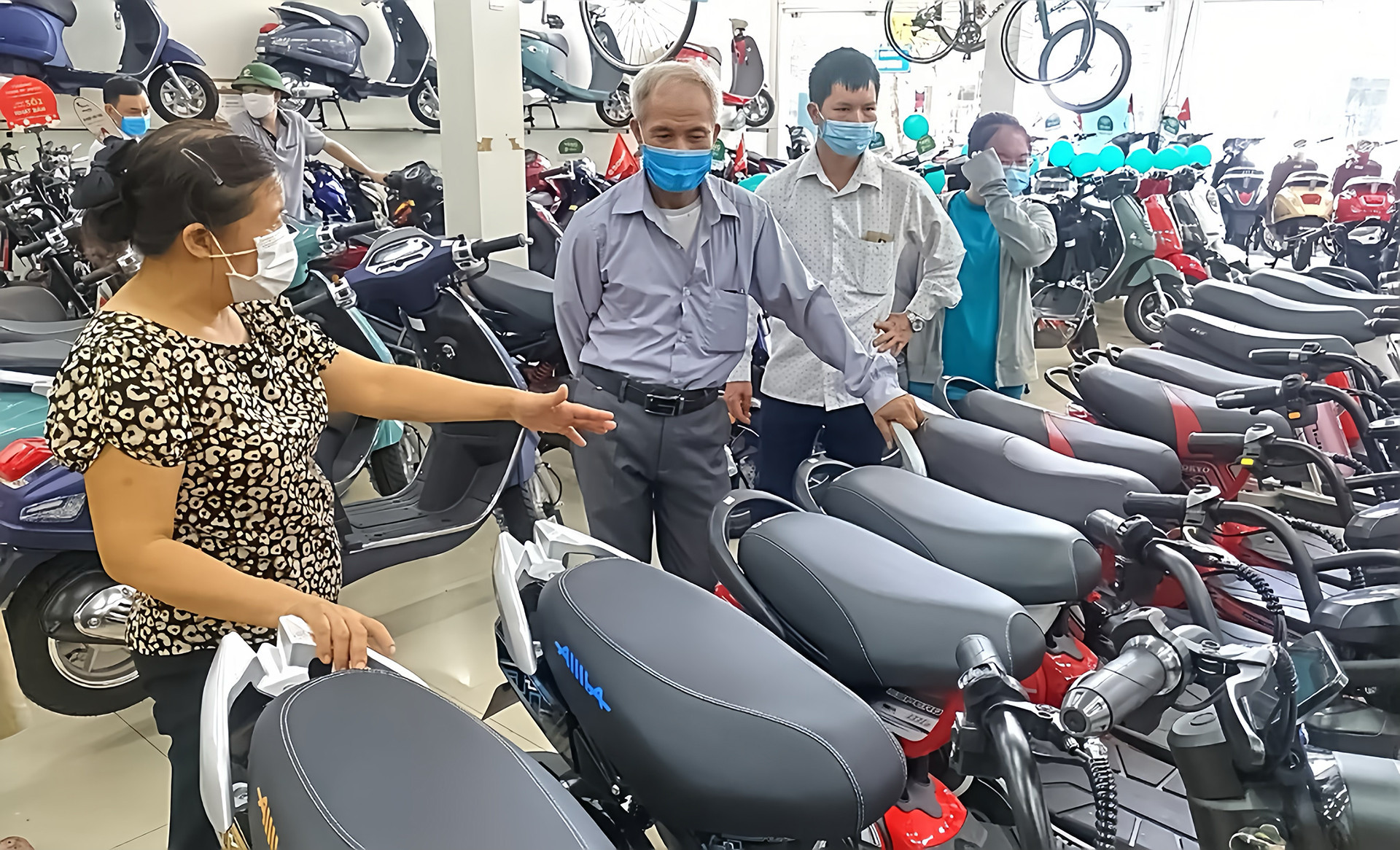
The HCM City Institute for Development Studies has proposed a resolution on policies to support, encourage and give preferences to individuals and households to shift from using petrol-run to electric motorbikes. It believes that it would be better to apply the policy on a trial basis in Can Gio district before large-scale application throughout the city.
The preferences could be motorbike registration tax and number plate fee reductions; preferential interest rates applied to new motorbike buyers, and financial support in shifting to electric motorbikes.
Under the plan submitted by the institute, in 2024-2025, poor households will get 100 percent financial support when buying new motorbikes, and near-poor households 80 percent. As for other individuals and households, they will get 100 percent of financial support in vehicle registration tax and plate number granting fee. They will also enjoy a preferential interest rate of 4 percent per annum if they buy motorbikes by instalments.
In 2026-2027, HCM City will encourage and support individuals and households to shift to use electric motorbikes, at least one motorbike for every household. The policies on support for registration tax and number plate fee applied in the 2024-2025 will continue in that period.
In 2028-2030, policies applied in Can Gio will be maintained. By that time, all households and individuals in the district will use electric motorbikes.
The plan has been applauded by many people and transport experts. However, will it be applied in other cities and provinces?
Under the government’s transformation plan, Vietnam will step by step restrict and stop manufacturing, assembling and importing fossil fuel-run motorbikes by 2040, while in the next period, all vehicles will use electricity or green power.
However, analysts have warned that challenges are ahead on the path towards transformation. The Ministry of Transport (MOT) reported that Vietnam had only 2.5 million electric motorbikes by the end of 2023 out of 75 million motorbikes registered.
This shows that petrol-run motorbikes still account for an overwhelming proportion, which may affect Vietnam’s plan to gradually restrict and stop manufacturing, assembling and importing petrol-run motorbikes by 2050.
According to Nguyen Minh Dong, director of Duc Viet Technology, Vietnam needs to overcome two challenges to reach the goal of transition to electric vehicles.
First, the majority of Vietnamese still keep the habit of using petrol-run motorbikes, while electric vehicles remain unfamiliar to them. Second, large motorbike manufacturers which hold the largest market share, still focus on manufacturing petrol-run motorbikes.
Domestic motorbike manufacturers have been in Vietnam for years during which they have spent big money on production and marketing. The shift to manufacturing electric motorbikes proves to be a risky move because they have to do everything from the very beginning.
They will have to pay for development, production and distribution, which may see revenue decrease and market share reduce. This explains why they focus on petrol-run motorbikes and are not enthusiastic about the transition to ‘green motorbikes’.
Vietnam still doesn’t have policies to encourage people to use electric motorbikes and manufacturers to make electric motorbikes.
Under current laws, electric cars enjoy vehicle registration tax exemption, while electric motorbikes don’t. Also, electric motorbike owners still have to pay for plate numbers like petrol-run motorbikes.
The great advantage of electric motorbikes is the reasonable daily cost and low maintenance compared with petrol-run motorbikes. There are diverse models of electric motorbikes and with technology development, electric motorbikes can run far and take less time to charge.
However, analysts point out that selling prices remain relatively high. Only when electric motorbikes become cheaper than petrol-run ones and when the government offers more attractive preferences will the transition to electric motorbikes be accelerated.
Meanwhile, other analysts are optimistic about the electric motorbike market. They say the petrol-run motorbike market in Vietnam is getting saturated with total demand for these products on the decrease in the last five years, and in current conditions, electric motorbikes will become their new driving force for growth.
Hoang Hiep